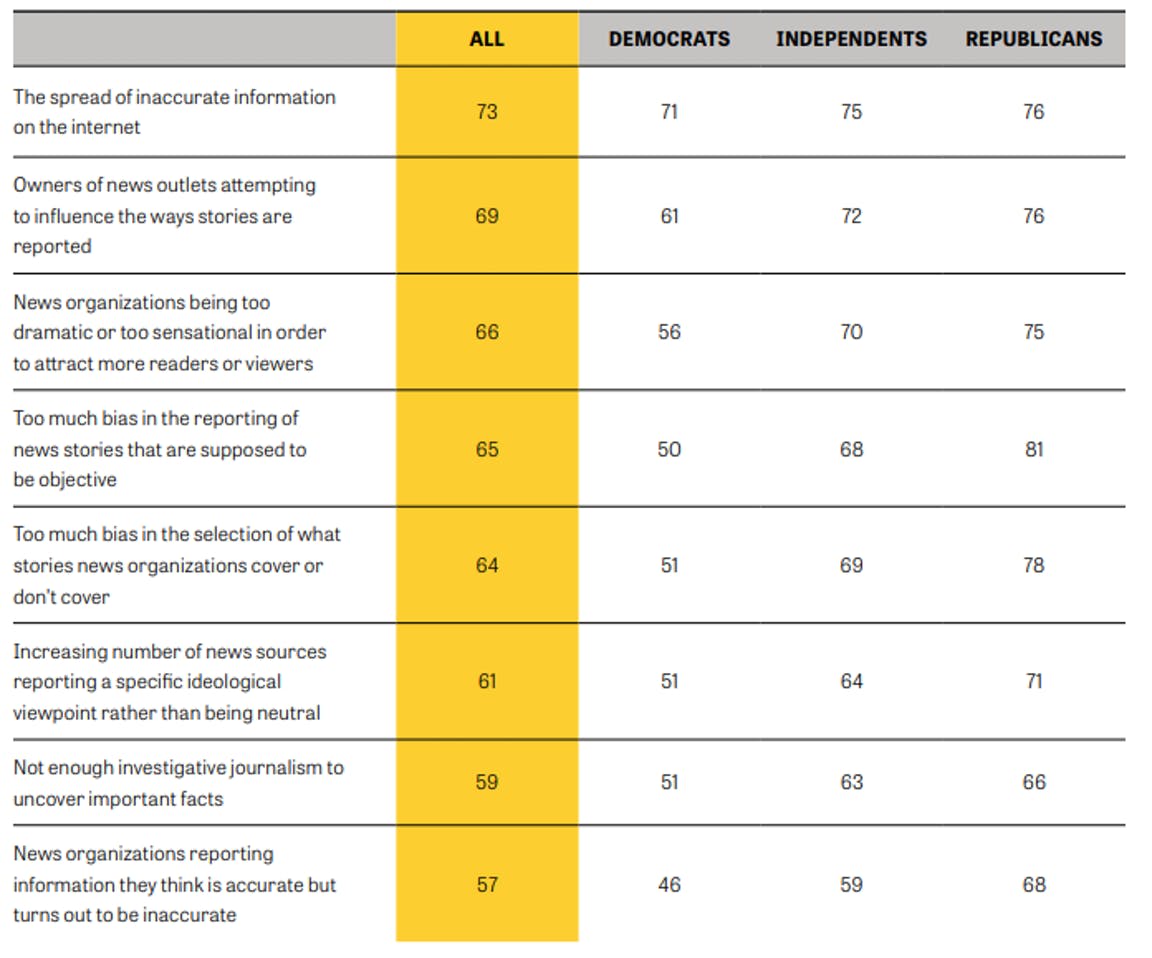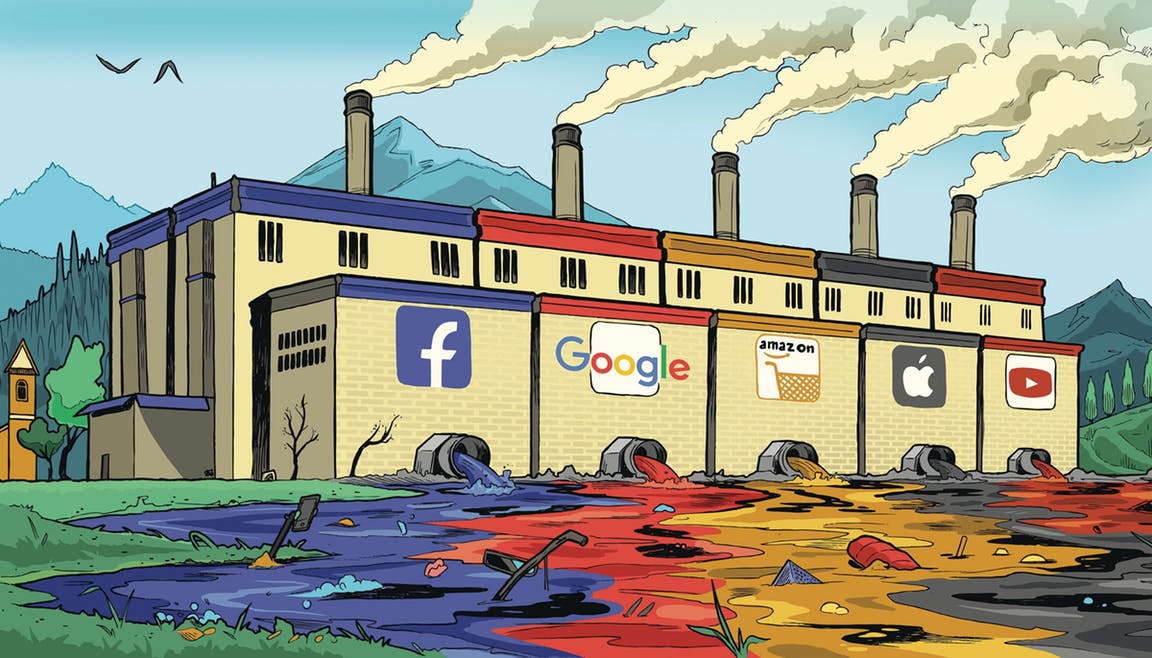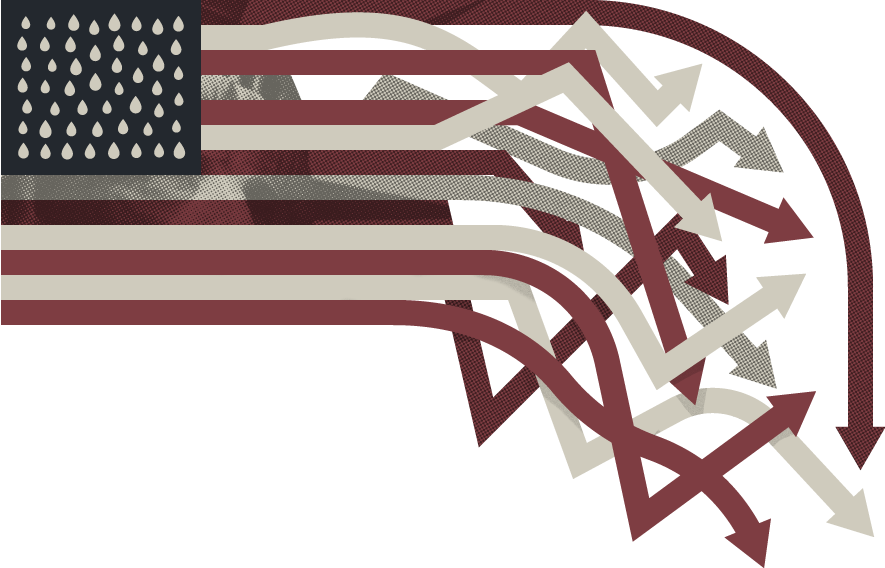
The price of progress: How “digital pollution” is poisoning democracy and what we can do about it
Sign up for updates on Knight’s trust, media and democracy work below.
The crisis of trust in our democracy is real.
In developed democracies, including ours, levels of confidence in critical institutions are low and declining. At Knight Foundation, we’ve spent much of the past two years thinking critically about this challenge.
Of particular concern are the low marks many Americans give news and media institutions, the foundation of an informed democracy.
We have good reason to believe that technology and the internet are playing an outsized role in driving declining trust in media. In a survey of nearly 20,000 Americans we conducted with the Gallup Organization, we found that, despite the greater availability of information in the digital age, a majority feels overwhelmed rather better informed. And, strong majorities of all political stripes see the proliferation of misinformation online as a leading challenge for our informed society.
Problems Associated With News Coverage Today, by Party Identification:

What we’ve been missing is a way to understand how to reconcile the incredible benefits of technology with the role the internet seems to be playing in the weakening of our democratic institutions.
In a new article, “The World Is Choking on Digital Pollution,” internet pioneer and long-time technology executive Judy Estrin and I argue that while the internet has been enormously beneficial to society, we can’t afford to ignore the byproducts that are having a corrosive effect on our democracy and society.
To capture the benefits of digitization, without enduring intolerable costs, we suggest it’s time for a new paradigm—one similar to how we treat other forms of pollution from industrial progress. Just as industrialization has yielded significant leaps in our quality of life, so, too, has it imposed new obligations on us to manage the toll of pollution on our physical world and our society.

The warning lights are flashing; the challenges of the digital age are posing fundamental challenges to our democracy. But how do these changes affect how communities are informed and engaged? Some of Knight’s recent efforts aim to explore this question:
- The Knight Commission on Trust, Media and Democracy, convened by the Aspen Institute, has examined the decline in Americans’ trust of democratic institutions, especially in the media. It will share its findings and recommendations next month.
- A Gallup/Knight partnership has produced a series of studies on Americans’ declining trust in news and information. It has focused on how people encounter information on the internet, as well as the responsibilities of technology companies.
- The Harvard/MIT Fund on the Ethics and Governance of Artificial Intelligence, supported by Knight, has examined how emerging artificial intelligence and machine learning technology upholds—or corrodes—our basic values. We co-sponsored with the Fund an open challenge on “AI and the News.”
- A recently-closed Knight-sponsored RFP on “The Future of an Informed Society” intends to support centers of study that address pressing questions about our rapidly-changing information ecosystem and its effects on democracy.
- If our democracy will survive this change, we’re going to need informed decision-makers as well. Last year, we provided $1 million in support to TechCongress, which connects technology expertise to members of Congress from both sides of the aisle.
The urgency for solutions in this moment of change is palpable. But equally urgent are new paradigms for how we think about the basic mechanisms of society. As Judy and I seek to suggest, the change wrought by the internet on our democracy is fundamental.
In these times, we need thought and action.
Sam Gill is VP/Communities and Impact at Knight Foundation. Follow him on Twitter at Sam Gill.
Image (top): Alchemy, by Anton Reponnen, via the Pattern Library.
-
Journalism / Article
-
Information and Society / Topic
-
Information and Society / Report
Recent Content
-
Journalismarticle ·
-
Journalismarticle ·
-
Journalismarticle ·





